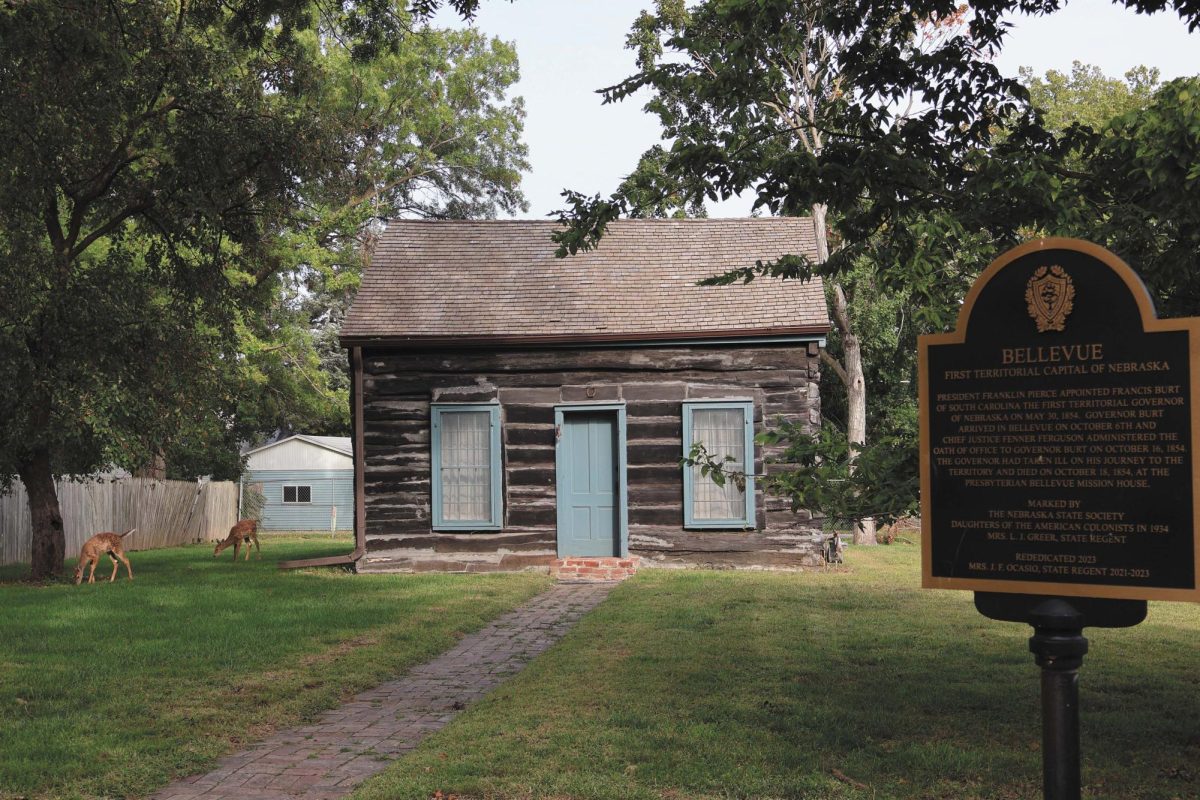Growing up, instructor Rachel Carraher’s family emphasized the importance of living sustainably and appreciating the resources they had. Even though recycling was less than convenient – it was never collected at their curbs – they still recycled, bringing items all the way to Carraher’s high school, Lincoln East.
“Make sure you’re not being wasteful with water. Don’t just spend money for money’s sake,” Carraher’s father and grandmother told her. “Value our resources.”
Carraher’s grandmother was born in 1915 and had lived through the Great Depression, which, according to Carraher, played a huge role in how she lived.
“Growing up, my dad raised me to value things, to not just spend money for money’s sake,” Carraher said. “We didn’t need to just accumulate stuff. That was just how we were raised. I recognized the importance of living sustainably through my grandma and father.”
In this day and age, living sustainably can almost feel impossible, especially with celebrities taking private jets for a 15-minute commute, or how products that are ethically sourced are oftentimes much pricier than their less than eco-friendly counterparts. Why is that?
A short and simple answer would be higher quality materials leads to higher prices. For example, a maxi dress from SHEIN, a popular fast-fashion (clothing that is mass produced) brand among Gen Z costs about $12, compared to a similar dress on a sustainable clothing brand like TenTree selling for $90.
However, it’s much deeper than that. According to Sustainable Jungle, sustainable businesses usually are aware that paying employees fairly is not only the right thing to do, but it’s also good for business; however, this does mean higher costs for customers.
“Fast fashion, fast crap, I hate it with a passion,” Carraher said. “It angers me that there is a lack of regulatory oversight in not only our country, but other countries. I dislike it because we are living as if we have infinite resources when we do not. Everything about it is wasteful, harmful, and it makes me angry.”
Unfortunately, as many customers know, bigger companies are not the most generous with their pay grades. Over the past few years, SHEIN has gone viral on social media for their unethical labor practices. SHEIN not only pays their employees an unlivable wage, but also actively supports child labor.
It’s unsurprising that, provided the logic that companies that fairly pay their workers provide long lasting products, SHEIN is notorious for their less than high quality clothing. In a similar situation is an online marketplace known as Temu (who was also recently exposed for potentially using spyware and other forms of malware to harvest users’ data).
“I don’t get stuff from Temu anymore because it just makes me feel not good,” junior Paiten Sealy said. “I get stuff from SHEIN a lot, and I’m just like, ‘ahh, I hate this, but I also love this stuff, but I hate what they’re doing.’ It’s mainly because they’re actually affordable.”
Compared to a majority of the clothing market, SHEIN is very affordable, oftentimes with clothing pieces costing less than $10. This brings the dilemma. Should a customer prioritize affordability, or protecting the planet?
“I think we can do both,” Carraher said. “There’s so much that we could do, and there’s so much availability. I think people want to have that in season stuff, and there are places that you can go to get that. It doesn’t have to be through Temu and SHEIN and those cheaper, exploitative companies. I can go to Thrift World or Goodwill and I can get Athleta, whereas at a store it’s 80 bucks. That is so not affordable. I can pick that up at Goodwill for 5.”
Celine Semaan, the founder of Slow Factory, believes that people as a society are stuck in an endless system that mainly relies on doing whatever a business can to provide products for sale. Any action that actively goes against that philosophy- regardless of positive motive or not- is nearly impossible because that is working out of the norm. It doesn’t help that nowadays, consumers often express the mentality of “I’m only one person, what can I do when there’s A-list celebrities taking their jets to grocery stores weekly?”
“Yeah, that’s just a rich person thing,” junior Sofia Burton said. “We’re idolizing these people, who are actively destroying the planet. You have to hold these people accountable.”
Burton’s family, like Carraher’s, strongly believes in protecting the planet. She encourages students to join Bellevue East’s Green Initiative club, or join other organizations outside of the building.
“Remember going outside yesterday, and it was so hot?” Burton said. “If we keep doing what we’re doing to the planet, it’s going to get hotter every single summer until you can’t be outside reasonably. It might not be in your lifetime, but it’s going to be in your kids’ lifetime, and do you want your kids to live on a planet where it’s too hot to play outside?”
Sustainable living doesn’t have to be expensive. According to Luxiders, protecting the planet can include doing things as simple as making coffee at home, using reusable bags at the grocery store, going paperless with bills and other mail, and, the kicker: don’t waste so much food (yearly, humans waste 92 billion pounds of food). Notably, these are small things, but often cost less. Brewing coffee from home is cheaper than going to someplace like Starbucks daily.
“One thing that often grounds me is the phrase, ‘I cannot do all the good that the world needs, but the world needs all the good that I can do. Remember our ripple,’” Carraher said. “I can’t change the world, but I can change within my reach.”



